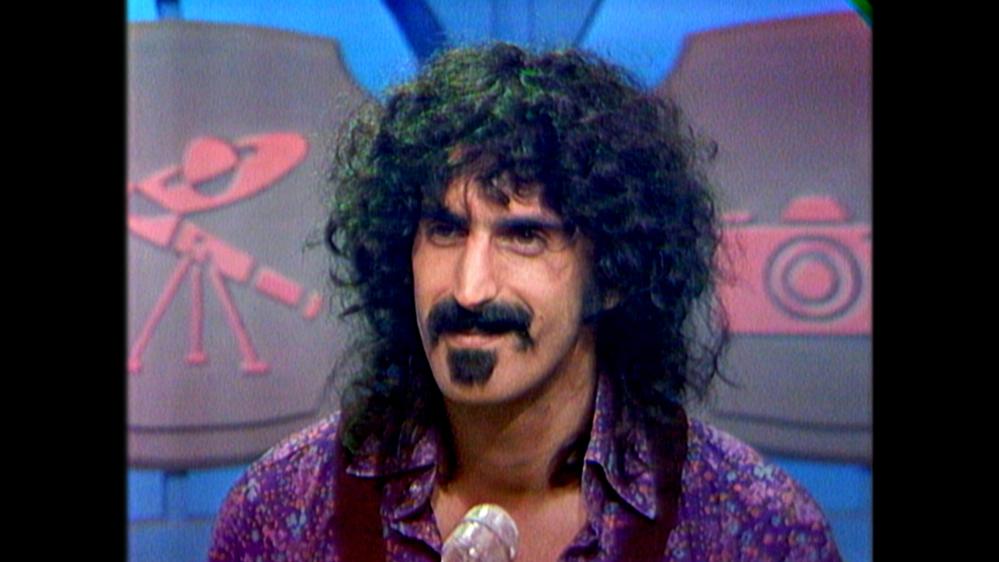
Movie Review
★★★★
EAT THAT QUESTION: Frank Zappa in His Own Words
Directed by Thorsten Schütte.
At Kendall Square. 90 minutes. R (language, some sexual references, and brief nudity). In English, German, Czech, and Swedish, with subtitles.
If you were young in the 1960s and wanted to seem hip, you’d become a fan of Frank Zappa. Understanding his music or even listening to it was extra credit. It was the style, the piratical appearance, the otherworldly, aloof, rational absurdity that made him a countercultural icon.
“I’m famous,’’ he says in one of the many interviews sublimely collaged together in German filmmaker Thorsten Schütte’s documentary “Eat That Question: Frank Zappa in His Own Words,’’ “but most people don’t know what I do.’’
Over the course of the film, Zappa comes into sharper focus through his song lyrics and in a series of unlikely interviews, the most insightful of which is also the most surprising — conducted by trooper Chuck Ash of the Pennsylvania State Police on what appears to be a cable TV show. After an eclectic music career (rock, jazz, orchestral, and beyond) spanning three decades, Zappa died of cancer in 1993 at the age of 52.
Schütte does not identify or date any of the interviews he uses, which can be annoying but is the key to the film’s intensity. By omitting such editorial oversight he achieves an eerie subjectivity so that one can almost share Zappa’s life along with him, the passage of time noted only by changes in hair and cultural references.
It starts with the performer clean shaven, wearing a suit and tie and playing a bicycle on “The Steve Allen Show.’’ It moves on to him getting a big ovation on “What’s My Line?’’ (Soupy Sales guesses who he is in no time.) It turns darker when he testifies on Capitol Hill against legislation to label albums for offensive content.
Zappa gets grayer, sicker, weaker. But in the end he is doing what he wanted to do all along — listening to his classical compositions played by world famous orchestras.
So what did he do, in his own words? He identifies himself as an entertainer and musician. He says his earliest influences were Edgar Varése, Igor Stravinsky, and Anton Webern. Later he says his style is “anything at any time for no reason at all.’’ After listening to a rich sampling of his music in this film, those of us who embraced Zappa for his image might want to check out the 62 albums that are his legacy.
★★★★★ EAT THAT QUESTION: Frank Zappa in His Own Words
Directed by Thorsten Schütte. At Kendall Square. 90 minutes. R (language, some sexual references and brief nudity). In English, German, Czech, and Swedish, with subtitles.
Peter Keough can be reached at petervkeough@gmail.com..



